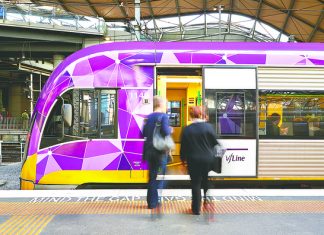The State Government will roll out an 18-month program that seeks to address employers’ “unconscious bias” in the recruitment process and level the playing field regardless of one’s background.
The pilot program, Recruit Smarter, will involve public service and private sector employers with funding allocated at $200,000.
“This initiative is the first of its kind in Australia, and an important step towards equality of opportunity in our workforce,” Multicultural Affairs Minister Robin Scott said.
Unconscious bias refers to judgments and assessments of others that you are not aware of making based on one’s gender, age, culture, background, or religion.
A study conducted by the Australian National University revealed people from culturally and linguistically diverse backgrounds with equivalent qualifications often had to submit more applications, compared to other applicants with Anglo sounding names, before they were offered an interview.
In a video promoting the program, Mr Scott said his wife, who has a Chinese name and background, was a victim of this bias when she was looking for employment.
He said she received a different response “almost instantaneously” when she changed her name to Jade Scott, even if she submitted the same curriculum vitae.
Information from the Recruit Smarter website showed applicants from Middle Eastern backgrounds need to submit 64 per cent more applications compared to Anglo applicants to attain an interview.
For Chinese applicants the figure increased to 68 per cent.
Gippsland Multicultural Services director Lisa Sinha welcomed the program, saying job applicants from migrant and refugee backgrounds also experience the same bias from local employers.
“For many from CALD (culturally and linguistically diverse) backgrounds – everything from their name to their overseas experience – may not be seen favourably,” Ms Sinha said.
She said a further problem was that many of the local jobs were not advertised as recruiting occurred through networks.
Ms Sinha said this placed newly arrived migrants and refugees in a disadvantaged position.
She cited a jobseeker who arrived in Gippsland from a refugee background a few years ago and was first told to improve his English.
“He was then told he needed qualifications to get a job, so he gained these,” she said.
“Then he was told he needed better ones, so he undertook further study. Now he is told he is over qualified for the job he’s applying for.
“If he undertakes any lower certificates he would need to pay full cost. It’s really difficult and we miss out on the wealth of experience that could be brought to our workplaces.”
Ms Sinha said she supported Recruit Smarter’s plan to address unconscious bias in employment by removing personal details such as an applicant’s name, age, location and gender when assessing applications.
“It would assist in eliminating bias as the employer must then focus only on the overt key selection criteria,” she said.










